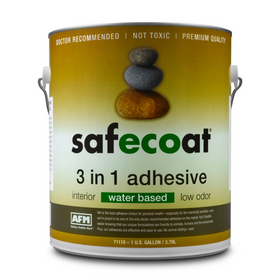
Can a Home be Zero Waste?
Last Updated: Apr 11, 2025How do we interact with the waste streams that flow through and out of our homes? For many of us, it's "out of sight and out of mind." Every week we take our garbage bin to the curb without really contemplating where that waste goes or how it affects our environment. It just gets "thrown away." While we may recycle aluminum cans or take our grocery bags shopping to avoid one-use plastic bags, we often find our garbage bins fill themselves up weekly.
Table of Contents
- Why Should We Care About Household Waste?
- Is It Possible to Get Rid of Garbage?
- Minimize Construction Waste
- Space Planning for Minimizing On-Going Waste
- Filter Your Water
- Bottom line

Why Should We Care About Household Waste?
Waste Hangs Around
The glass bottle you throw into the garbage might take upwards of one million years to decompose in landfills. Those daily disposable diapers that are a staple of families with small babies could take up to 450 years to decompose. Your soda can might be in the ground for 200 years before eventually disappearing back into the earth. Archaeological sites of past civilizations are full of beautiful pieces of pottery and earthenware. In contrast, future societies will marvel at the sheer amount of non-biodegradable trash our culture created.
Waste Contributes to Climate Change
Another problem with the garbage that leaves our homes is that it contributes to global warming while slowly decomposing. According to the EPA, landfill gas is around 50% methane and 50% carbon dioxide. Methane is one of the most potent greenhouse gasses. It is considered to be about 30 times stronger than CO2 in accelerating global climate change. The garbage that flows through our homes, then, is leading to excessive methane gas being released in landfills, to the tune of 130 million metric tons each year.

Landfills Will Contaminate Our Groundwater
Legislation was passed in the 1980s and 1990s to try to control leaching from landfills. The Environmental Protection Agency has stated that all landfills will eventually leach potential toxins and pollution into the environment. Groundwater contamination is a concern of communities across the country and one reason why it is becoming increasingly difficult for municipal authorities to find locations for new landfills.
Is It Possible to Get Rid of Garbage?
For a home renovation project, especially a kitchen renovation, it's best to plan to help reach a zero-waste home's lofty goal. Rise spoke with zero-waste expert and blogger Kathryn Kellogg, founder of goingzerowaste.com, and she recommends starting with your very own waste audit.
I encourage people to keep a clipboard by their trash can and write down each item that ends up in the trash. Then, at the end of the week, look at the tally of items. It's a great visual that will help you prioritize where you can have the biggest impact.

Buy Bulk to Reduce Packaging Waste
Next, while we may bring our reusable bags for shopping when heading to the grocery store, the amount of plastic packaging we bring home is often considerably higher than the plastic bags we avoid. However, to prevent packaging waste, we need an area in our house to store food that we purchase in bulk. Planning a space that can hold large bins or containers for bulk food storage is one way your household can reduce packaging waste.
Compost Organic Waste
The EPA estimates that over 61% of all municipal solid waste is organic. Paper accounts for 27% of our waste stream, while food waste is almost 15% of everything we throw away—yard clippings and wood account for 13.5% and 6.2% of our waste, respectively. Organic waste in landfills leads to anaerobic decomposition (without oxygen). This process is what causes the majority of methane to escape from our landfills into the atmosphere. Organic waste of all types, however, can be composted or used at home. We can choose from many strategies, beginning with simple composting techniques or a worm compost bin. We can also rent a wood chipper to turn your yard trimmings, leaves, and fallen branches into mulch. Using these tactics, homeowners can reduce their waste stream by up to 60%. Instead of releasing methane into the air, composting your home's organic waste will increase your soil's fertility.

Filter Your Water
Here at Rise, we believe that water filtration is a crucial component in a sustainable home. Clean, good-tasting water is vital for your health, and once you've got the best water in your home, you will not want to purchase any more bottled water. This approach not only saves money but also reduces a lot of waste. Even if you recycle your water bottles, not buying bottled water in the first place is much better for reducing your ecological footprint. As Kathryn Kellogg says, "living a zero-waste lifestyle isn't about recycling more; it's about recycling less." Meaning, we need to reduce single-use items upfront. So, when planning a kitchen remodel, prioritize water filtration and make room for storing reusable water bottles.
Living a zero-waste lifestyle isn't about recycling more; it's about recycling less.
Tobias Roberts
Tobias runs an agroecology farm and a natural building collective in the mountains of El Salvador. He specializes in earthen construction methods and uses permaculture design methods to integrate structures into the sustainability of the landscape.













